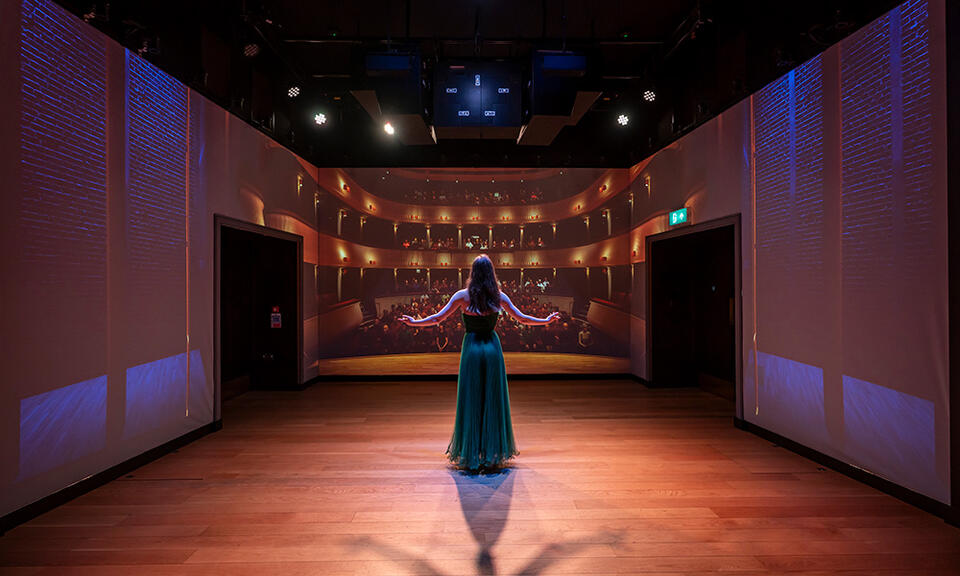Full-Time MBA students practise pitching to the Royal College of Music’s Performance Laboratory
As part of the Full-Time MBA programme, our students had the opportunity to put their pitching skills to practise, in front of the Royal College of Music’s Performance Laboratory. The Performance Laboratory, originally intended for musicians, allows performers to develop and refine their skills to enhance their stage presence and performance/ presentation skills. An AV recording system allows musicians to watch and review their performances immediately afterwards on web-enabled devices.
This unique experience is part of the Personal Leadership Journey, and is one of the many ways Imperial supports students with executive communication skills. The Personal Leadership Journey is a Careers-led module that runs throughout the programme. It is designed to give our students the key skills they need as a global professional through workshops, reflective exercises and one-to-one meetings.
David MacDonald shares his experience using the Laboratory, how this has helped increase his pitching confidence and gave him a new skillset that he can apply to his future career.
About me
I had worked in the UK energy industry for the past 8 years and was motivated to study the Full-Time MBA at Imperial Business School to improve my business knowledge and skills to help influence the energy transition.
Nationality: British
Education: University of Edinburgh, Master’s in Chemical Engineering
The purpose of the Performance Laboratory
One of the main skills we need to succeed in our careers post MBA is being able to give a powerful and impactful pitch. At the Royal College of Music, they understand the importance of performance and some of the small details that can turn a presentation from good to great. The Performance Laboratory is a great experience to learn both some areas you are strong in while also finding areas you have an opportunity to improve in.
The Laboratory allows you to observe the non-verbal aspects of your pitch. Our presenter, Dr George Waddell was able to mute the audio so you could observe what your body language was portraying as you presented. Even more interesting was observing each other while not presenting as you could observe some traits that could be distracting to an audience and detract from the person who was presenting.
Building confidence from the Laboratory
The Laboratory shows 200 people in a room giving you a chance to practice giving eye contact to different parts of the room and how to respond to different audience body language. By practicing in this simulated environment, it helps condition us to be less nervous on the day, building our confidence to be able to deliver on the day of the presentation.
The impact of the Performance Laboratory
The Performance Laboratory feedback helps get me ready for some of the important pitches we must give throughout the year. Learning these skills early in my course will improve my confidence when giving a presentation to different audiences. It also reminded our team how vital it is to practice not only our individual parts, but also how to perfect the entrance, the handovers and the finale.
Transferable skills from my MBA programme to my future career
Watching a video of yourself presenting is something a lot of people, me included, find a bit uncomfortable. It does however give you a better idea of what other people are seeing and sometimes you may be displaying emotions and body language that may contrast the message you are trying to send. This will also be important to remember during job interviews in the future and will be something I will always practice improving for the future!
My advice to future MBA students using the Laboratory
If you want to change your pitch from good to great, consider using a virtual simulator. It has three key benefits over the traditional form of practicing;
- You can practice your response to an uninterested or disagreeable audience, making it much less likely to throw your performance off on the day.
- By watching the recording of your pitch, you will see some body language traits you were not aware of and understand how to accentuate the positive traits and stop the distracting ones
- It helps you understand that your role isn’t over once you are finished talking. The presentation is a team effort, and you should be focussed on supporting the current presenter throughout using body language cues and gestures.





